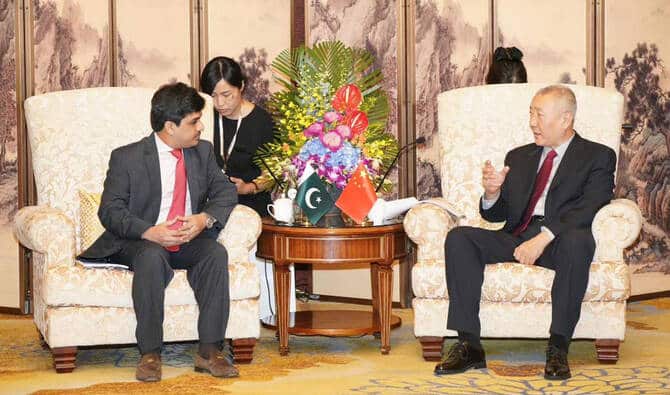ISLAMABAD: Pakistan’s Culture Minister Huzaifa Rehman met Chinese Culture Minister Gao Zheng in Beijing to boost tourism and cultural ties, state media reported.
Pakistan offers immense tourism potential. It is home to Himalayan and Karakoram peaks, and ancient sites like Mohenjo-Daro and Taxila. Islamabad is now actively promoting these attractions to global travelers.
To increase tourism, Pakistan has signed agreements with regional partners and opened new air and land links with Central Asian states. The goal is to earn foreign exchange as the country faces a prolonged economic crisis.
During the meeting on Sunday, Rehman and Zheng discussed ways to enhance cooperation in tourism and heritage preservation. The Associated Press of Pakistan (APP) said both leaders agreed to work together on cultural diplomacy and tourism development.
Rehman thanked China for its continued friendship and support.
Both countries agreed to launch joint projects to restore and digitally preserve historic sites. They also decided to improve museum partnerships and host cultural exchanges, art shows, and film festivals.
The two sides planned training programs in museology and professional development for museum staff. They also committed to joint tourism campaigns and new policy steps to attract more visitors.
The Chinese minister invited Rehman to attend the International Museum Conference in China this September. Rehman accepted the invitation.
APP called the meeting a major step. It said the talks created a roadmap for stronger cultural ties and shared heritage preservation.
China remains a key ally and investor in Pakistan. It has invested heavily through the China-Pakistan Economic Corridor (CPEC), a massive infrastructure initiative.
Also Read: GPE approves $9 million grant to boost early education in Balochistan
Launched in 2013, CPEC includes highways, railways, and energy projects. China has already invested tens of billions of dollars in the project.





